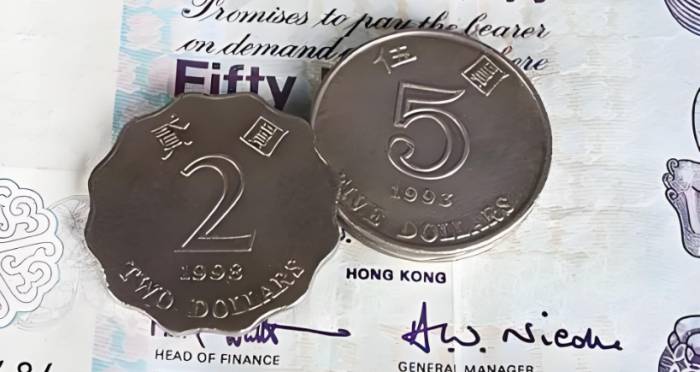Over a Thousand Foreign Institutions Enter the Market
On July 3, 2017, the "Northbound Trading" of Bond Connect was officially launched, with active transactions on the first day. Compared with other channels, the advantage of Bond Connect in entering the Chinese bond market is that investors can trade through familiar overseas trading platforms without having to adapt to new trading methods and platforms, which lowers the threshold for entering the Chinese market.
Over the past seven years, the scale of Bond Connect has gradually expanded, and the depth and breadth of China's bond market opening up to the outside world have also been continuously improved. As of the end of May 2024, foreign institutions held 4.22 trillion yuan in interbank market bonds, accounting for about 3.0% of the total custody volume of the interbank bond market.
Currently, there are 1,128 foreign institutional entities entering the market, among which 564 entered through direct investment channels, 821 through Bond Connect channels, and 257 through both channels. The spot transaction volume of foreign institutions in the interbank bond market is about 1.69 trillion yuan, with an average daily transaction volume of about 80.4 billion yuan.
"These figures indicate that Bond Connect has promoted a rapid increase in the scale of foreign holdings of Chinese bonds, and has facilitated the internationalization process of China's bond market. In terms of the depth of the bond market, Bond Connect has also promoted the multi-level development of China's bond market, and has promoted market innovation and development," said Huang Jiachen, Managing Director of Invesco and Head of Fixed Income for Asia Pacific, to the reporter.
Under the promotion of Bond Connect, the three major global bond indices, including the Bloomberg Barclays GGBA Index, the J.P. Morgan Emerging Market Bond Index, and the FTSE Russell WGBI Index, have all included Chinese bonds. Due to the advantages of relatively high interest rates in previous years, the Chinese bond market experienced a period of high-speed inflow of foreign capital. Starting from the past two years, due to the pressure on the yuan and the market fluctuations caused by the Federal Reserve's interest rate hikes, foreign capital net sold Chinese bonds, and the Asia-Pacific bond market was also under pressure. However, the latest data shows that the market has begun to stabilize.
"The sentiment of foreign investors towards the Chinese bond market has turned positive again, with increased positions in government bonds, national development bonds, and negotiable certificates of deposit (NCDs)," said BNP Paribas recently, adding that the net inflow of portfolio investment increased significantly in May, mainly due to the inflow of funds from bond asset swaps (ASW), which is the form of foreign capital arranging the Chinese bond market through domestic foreign exchange swaps.
"Swap Connect" is still expected after the Treasury futures
"Swap Connect" is also a key milestone.
Since the launch of "Swap Connect" in May 2023, a total of 58 foreign institutional investors have entered the market. At the same time, the transaction volume has also been steadily increasing, and the types of institutions covered have been continuously expanding. The average daily transaction and clearing volume has steadily increased from less than 3 billion yuan in the first month of launch to more than 12 billion yuan in April 2024. The reason why "Swap Connect" is so popular is mainly that it has to some extent met the needs of foreign investors for risk hedging strategies when making cross-border investments.Before the launch of the "Interbank Offered Rate (IBOR) F互换通", foreign investors often had to rely on offshore Renminbi interest rate swaps (NDIRS) to manage interest rate risks, but the liquidity and pricing were still somewhat inferior to those of the domestic Interest Rate Swaps (IRS). The introduction of "互换通" undoubtedly facilitates their participation in such transactions. Interest rate swaps, also known as interest rate swaps, are over-the-counter derivative instruments used to manage the risks associated with interest rate changes. The two parties involved in the transaction exchange interest payments at different rates on the same principal, for example, one party can receive fixed interest payments on the principal, while the other receives floating interest payments.
Wang Zhijian, Senior Manager of the Financial Markets Department at Bank of Communications, previously told reporters that the domestic market for IRS has reached a transaction scale of 21 trillion yuan, which is a fair-priced and highly mature and efficient market, effectively helping institutions manage interest rate risks. With the launch of "互换通", the scale of this market is expected to expand further.
Huang Jiachen said that in May of this year, several optimization measures were introduced for the "互换通", including the addition of standardized interest rate swap contracts with the International Money Market (IMM) settlement day as the payment cycle, and the extension of the fee discount period. Such optimization measures have better mobilized the enthusiasm of foreign institutions to participate in "互换通", better meet the diversified risk management needs of domestic and foreign investors, and further reduce the costs for investors to participate, laying a good foundation for the further expansion of "互换通".
According to the reporter's understanding, government bond futures are still the most desired product for foreign investors to participate in, and their hedging efficiency far exceeds that of NDIRS and IRS. However, several traders have told the reporter that domestic bond futures are currently only open to QFII participants, and due to the lack of specific operational guidelines, there are not many participants. In addition to QFII, only WFOE (wholly foreign-owned) institutions with domestic licenses can trade domestic bond futures.
Huang Jiachen believes that if China's interest rate, exchange rate, and credit risk derivative markets are to be further developed, providing appropriate financial instruments for foreign institutions to manage the interest rate risks, exchange rate risks, and credit risks of Renminbi bonds is an important step.
More details still need to be refined.
In the view of international investors, in order to make the bond connection more convenient, there are still some details that can be further refined.
Huang Jiachen said that the first is the simplification of the application process for the bond connection, and there is still room for further simplification of the current transaction registration procedures; secondly, the demand for supporting risk hedging strategies can also be further refined. For foreign investors, there is a relatively large demand for risk hedging strategies when making cross-border investments through the northbound channel. Recently, regulatory authorities have begun to allow third-party currency forward transactions, which is a good direction.
In addition to the demand for currency risk hedging, the demand for interest rate risk hedging is also very large. The establishment of "互换通" will to some extent meet the needs of investors in this regard, but in actual operation, there are some details that can be further optimized. For example, US participants must become OTC settlement members to participate in "互换通". At the same time, there is room for further strengthening the scope of services for foreign professionals and the transparency of information. In addition to trading interest rate swap products through "互换通", it is also possible to consider including bond futures and repurchase agreements in the scope of cross-border transactions, which will help domestic and foreign investors have a rich set of tools to effectively manage the risks of their investment portfolios.
In addition, institutions also believe that there is still room for simplification in the bond delivery process when foreign investors invest in domestic bonds through the bond connection and other means. Currently, the delivery of domestic bonds requires manual confirmation through email. In the entire process, traders, traders, and middle and back offices all need to manually confirm emails before the bond delivery can be completed. In overseas practice, participants can directly complete the delivery through the central trading matching platform. A large number of non-automated operation processes make the entire delivery process more cumbersome and prone to unnecessary errors. If the related processes can be automated, it will greatly improve the convenience of bond trading and delivery.Institutions widely anticipate that international investors will likely continue to increase their holdings of Chinese bonds in the future. Eric Robertsen, the Global Chief Strategist at Standard Chartered, recently told reporters that the yield on China's 10-year government bonds has recently fallen below the April lows, while the yield on 30-year bonds is close to hitting a new annual low. The demand for long-term assets in China remains strong, and this situation is expected to persist due to low inflation rates and policymakers' expectations of further interest rate cuts. Traders generally believe that if the subsequent issuance of long-term Chinese bonds leads to some price corrections, international investors will still buy on dips.






























Comments
Join the discussion